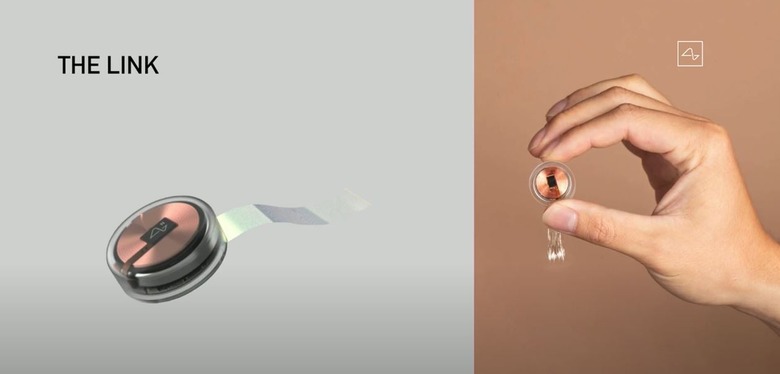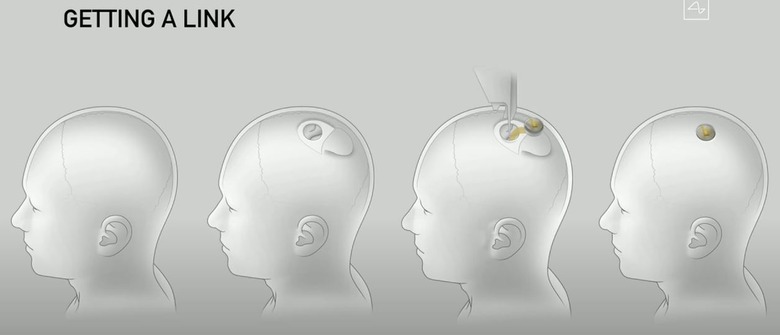Elon Musk Shows Off Futuristic Neuralink And The Robot That Implants It
As promised, Elon Musk held a conference today detailing Neuralink, an implantable device that would, according to Musk, solve certain problems related to brain and spine function. As an implant — and unlike many prototypes of similar concepts we've seen over the years — Neuralink will be entirely implanted within the recipient's body, hiding it away from the world. Before such a device can be brought to market, however, it'll require talented people to make it happen.
In the presentation, Musk said that the majority of people will, at some point in their life, face some variety of brain or spine problems. He presented multiple examples of the related issues that Neuralink may eventually address, including things like paralysis, strokes, blindness, hearing loss, as well as more common things like anxiety and depression.
During his presentation, Musk explained:
An implantable device can actually solve these problems; a lot of people don't quite realize that. All of your senses, your sight, hearing, feeling, pain — these are all electrical signals sent by neurons to your brain. And if you can correct these signals, you can correct everything from hearing loss [to the other issues listed above and more.]
In its present form, implanted brain devices are crude — they include boxes and wires coming out of the person's head, which is not only uncomfortable but also an infection risk. Musk envisions a Neuralink that is the opposite of existing systems, stating, "We want to radically improve this by an order of magnitude.
Neuralink is working to simplify the implantable device. In its original form, the device had a small component (the "link") that resided behind the patient's ear; that has been reduced to a link that is around the size of a coin and sits within the patient's skull, invisible to the outside work. The presentation included an image of the concept in its current form (below).

"Frankly, to sort of simplify this, [the Link is] in many ways like a Fitbit in your skull with tiny wires," Musk explained, teasing that he may have one implanted in his own head right this moment and no one would be able to tell.
The Neuralink team is currently on Link prototype version 0.9, which features 1,024 channels per link with a megabit wireless data rate, battery life that lasts all day, an invisible design, and plus various sensors for things like pressure and temperature — many of the same ones found in smartwatches that could be used to monitor the user's health, in addition to more fun things like playing music.
Charging is inductive, meaning it would charge using a magnetic charger similar to the ones used with existing smartwatches. The concept envisions implantation that would use a special robot, enabling the implantation to be performed without general anesthesia in less than an hour. Patients could, Musk says, potentially leave the hospital the same day they receive the implant.

The implanting robot does the surgery and puts in the electrodes, making the surgery very precise and mostly automated, according to Musk. The presentation included an example of the robot, which was designed by Woke Studios, the industrial design partner working with Neuralink.
The robot will, ideally, perform the entire surgery, including cutting the skin, removing the piece of skull, inserting the electrodes, and then gluing the incision closed. The robot has been used as part of the development process; the presentation included a slightly gory medical image of the electrodes inserted into the brain, noting that a careful insertion means the brain doesn't even bleed. "You will have no noticeable neural damage from inserting the Link," Musk said.
At this point in time, Neuralink is looking for talent that will help bring about the brain link in a major way. The company currently has job listing lives on its website, which also has a link to a video of Musk's ongoing presentation; it should be available to watch in its entirety soon.
